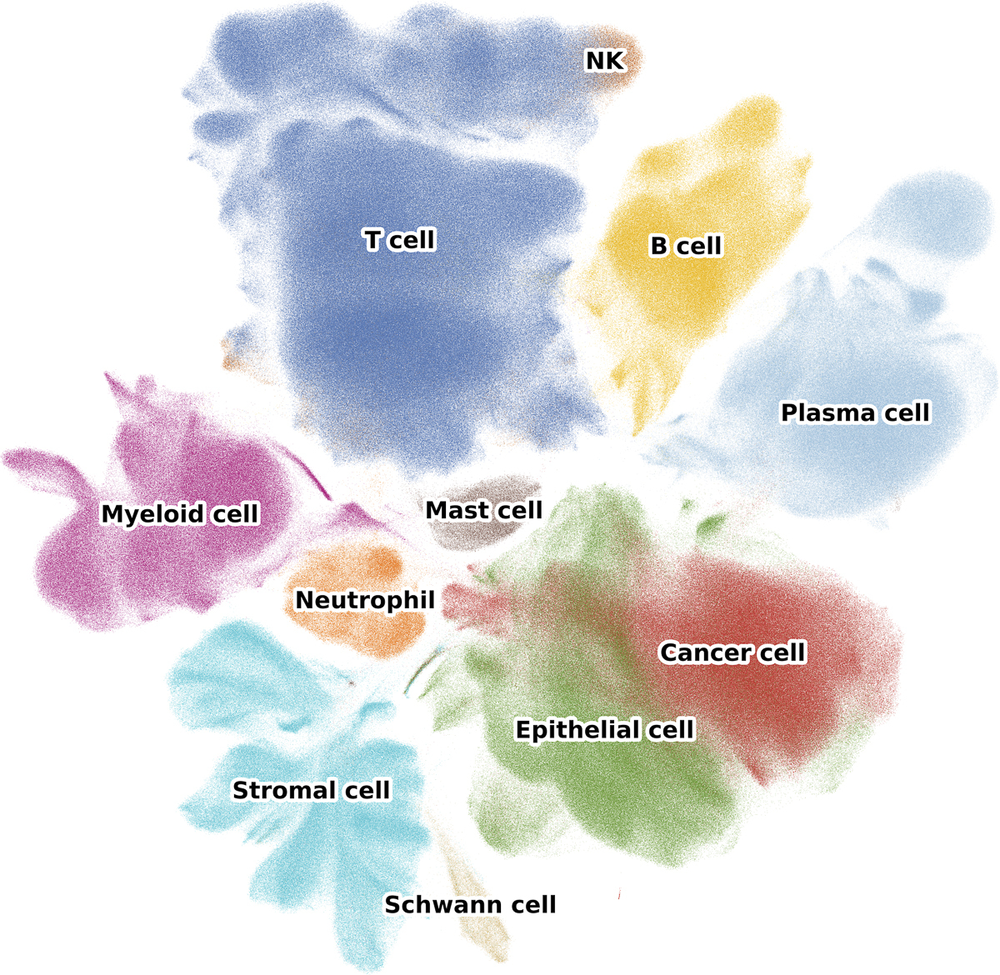Single-cell Colorectal Cancer Atlas
Single-cell integration and multi-modal profiling reveals phenotypes and spatial organization of neutrophils in colorectal cancer
The single cell colorectal cancer atlas is a resource integrating more than 4.27 million cells from 650 patients across 49 studies (77 datasets) representing 7 billion expression values. These samples encompass the full spectrum of disease progression, from normal colon to polyps, primary tumors, and metastases, covering both early and advanced stages of CRC. Additionally, to address the limited availability of neutrophil single-cell data, we supplemented the atlas by analyzing samples from 12 CRC patients using a platform that captures cells with very low transcript counts. We present a high-resolution view of CRC with 62 major cell types or states, revealing different cell-type composition patterns in CRC subtypes.

Get the h5ad file
The core-atlas will be available on the CZI
cell-x-gene. Meanwhile, you can download the
h5ad file with standardized
metadata for further analysis.
CZI cell-x-gene portal (coming soon...)
The core-atlas will be available on the CZI
cell-x-gene. There, you can
explore the datasets interactively in the browser and
download them as h5ad (scverse) or rds (Seurat) files with standardized
metadata for further analysis.
scArches model (coming soon...)
For the core atlas, we also provide a scArches model that allows to project new datasets onto the atlas and automatically annotate cell-types.
Get input data and intermediate results (coming soon...)
In addition to the h5ad objects mentioned
above, we provide preprocessed input data, intermediate
results and final results on zenodo. The results were
derived using the source code provided on GitHub and contain
a rendered version of the Jupyter/Rmarkdown notebooks that
were used to generate the figures in the manuscript.
Browse code
All code needed to reproduce the study is wrapped into a nextflow workflow and publicy available from GitHub.
Contact
For reproducibility issues or any other requests regarding single-cell data analysis, please use the issue tracker. For anything else, you can reach out to the corresponding author(s) as indicated in the manuscript.